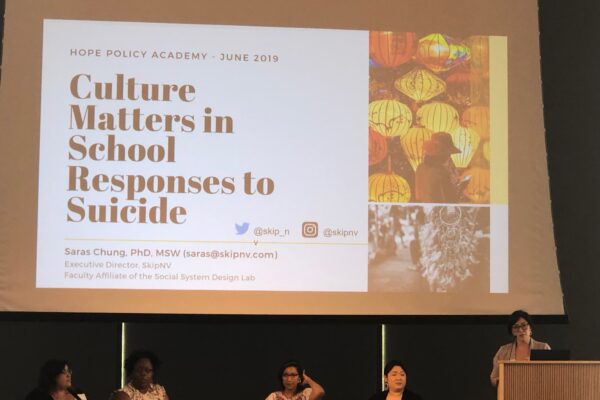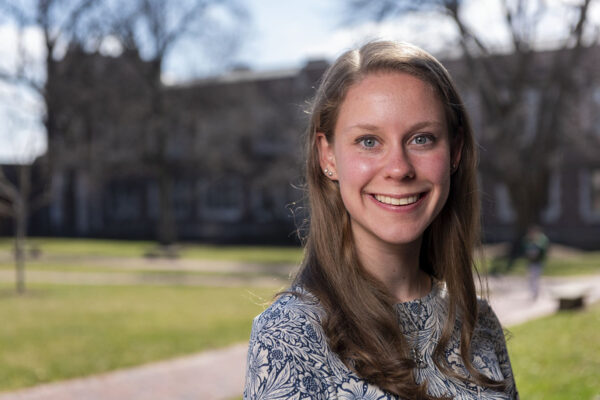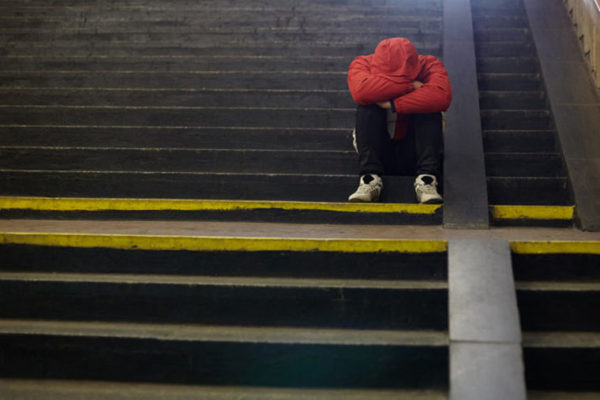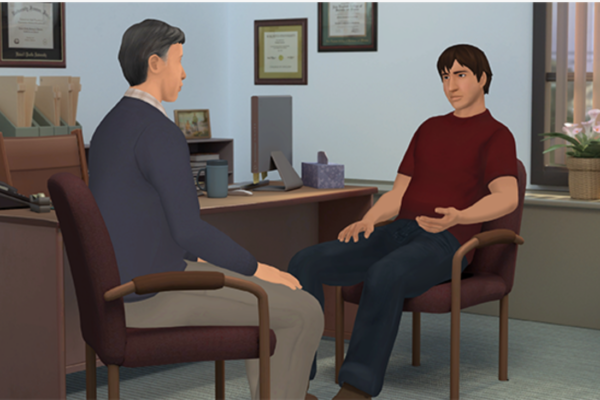Helping schools with suicide prevention
With the goal of preventing youth suicide by helping schools set up a student support system, the Brown School at Washington University in St. Louis hosted the Hope Policy Academy June 6.
$10 million gift aimed at improving treatments for mental illness
Philanthropists Andrew and Barbara Taylor and the Crawford Taylor Foundation have committed $10 million to the School of Medicine to continue research to investigate the scientific underpinnings of psychiatric illnesses, with the goal of improving diagnosis and treatment.
Student Gorham excels in the lab, on the track
Personal experience told Lisa Gorham, captain of the Washington University in St. Louis cross-country, track and indoor track teams, that team sports and adolescent mental health are linked. But what would the data say? Gorham has just published her findings in a leading journal — a rare accomplishment for an undergraduate researcher.
Mobile phone technology to screen, help treat college students
With a growing demand for mental health services at colleges, a research team led by the School of Medicine has received a $3.8 million grant to test a mental health phone app to treat depression, anxiety and eating disorders in a study involving some 8,000 students at 20 colleges, universities and community colleges.
Young kids with suicidal thoughts understand concept of death
When very young children talk about wanting to commit suicide, conventional wisdom is that they don’t understand what they’re saying. But School of Medicine research has found that depressed children ages 4 to 6 who think and talk about committing suicide understand what it means to die better than other kids of the same age. They also are more likely to think of death as something caused by violence.
Brown School researcher to study mental health on global scale
Leopoldo J. Cabassa, associate professor at the Brown School at Washington University in St. Louis, is part of a team that has received a five-year $2.9 million grant from the National Institute of Mental Health to study interventions for people suffering from mental health issues in Chile.
Kognito helps faculty, staff discuss mental health concerns with students
The signs of stress, anxiety or depression in a student may be easy to spot. The hard part is knowing what to do next.
Kognito At-Risk for Faculty & Staff, an online simulation tool, will help Washington University in St. Louis faculty and staff lead effective discussions with struggling students.
Uncertainty leads to treatment delays for young people with mental illness
Stigmas, attitudes of self-reliance and misattributing symptoms led a group of young adults experiencing their first episode of psychosis to delay seeking treatment, finds a new study from the Brown School at Washington University in St. Louis.
The importance of cultural intervention in mental health care
The first study to examine the initial impact of a culturally-adapted health care manager intervention aimed at helping Hispanics with serious mental illness, led by Leopoldo Cabassa of the Brown School, finds the intervention shows potential for improving health outcomes for Hispanics.
Helping women escape sex trafficking
As a survivor of sex trafficking, Katie Rhoades, MSW ’11, is passionate about helping women in the commercial sex industry. After graduating from the Brown School, she founded Healing Action, a nonprofit that helps women move on from their trauma.
Older Stories









